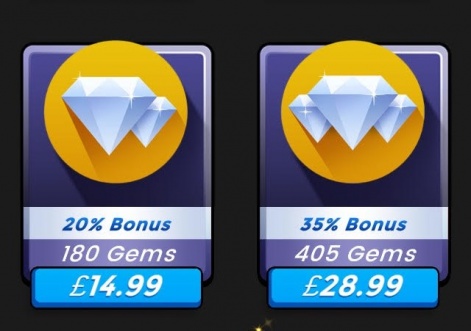Welcome back to the In-App Purchase Inspector - our regular look at free-to-play games from the consumer's perspective.
In each instalment, we consider the incentives or pressure applied to make in-app purchases, their perceived value, the expansion offered by IAPs and the overall value of the experience.
The end goal is to see whether the game makes a good enough case for us to part with our cash, or whether players are content – or engaged enough – to 'freeload'.
This time we're taking a look at What's Your Story?, the interactive narrative portal from Ludia.
Not a sequel
Speaking to PocketGamer.biz, Ludia CEO Alex Thabet set out his stall with What's Your Story?: “We want to take the best of the current games and create something new.”
And from the outside looking in, the game's launch in January 2018 would appear to have come at an opportune moment.
Interactive fiction apps are soaring all over the app stores, with the acquisitions of Pixelberry and 1492 Studios (by Nexon and Ubisoft, respectively) showing that big names are getting in on the act.
And let's not forget that the most established app in the interactive fiction space, Episode, is backed by Tencent, who last year ploughed an additional $90 million into its developer Pocket Gems.
So the desire to compete is understandable. The competition, however, is tough.
Best-sellers
What's Your Story? fits neatly into what appears to be an emerging formula for mobile interactive fiction, very similar presentation-wise to Pixelberry's Choices: Stories You Play.
What's immediately obvious when you start up What's Your Story? are the licensed stories on offer – the aspect that really pushed Episode to major success – including those based around Baywatch, 90210 and Scream: The TV Series.

New stories based around America's Next Top Model and CSI: Crime Scene Investigation are said to be coming soon, but there is a notable dearth of content compared to its competitors.
It is of course early days, but the last thing that Ludia will want is for players to run out of new content to play. It's relying on fresh stories to keep players coming back and paying.
Take your time
This might have influenced its monetisation design, which unlike Choices: Stories You Play is based heavily around energy gating.
To play one chapter costs one Ticket, the game's energy currency. You're given two at the outset but, after those have been used, it takes two and a half hours to be gifted a new one.
It isn't simply a case of waiting long enough to store up the Tickets, either, as they regenerate only one at a time. In real terms, for the non-paying player, this limits them to one chapter every two and a half hours.
For those who want to enjoy the stories at a quicker pace, Tickets can be bought in inexpensive bundles ranging from $1.99 for six to $9.99 for 39. But from the off, it's clear that Ludia's focus is elsewhere.
The real appeal with Tickets is for players to join its VIP subscription service, at a cost of $4.99 per month.

In return, VIPs are granted early access to new content, the ability to skip the ads that precede each chapter, access to VIP-exclusive clothing items and free currency.
The most important perk, however, is that the number of free Tickets that can be saved up is increased to three, ending the sluggish progression afforded to those playing for free.
Sparkling
The game's other currency is Gems, which serves a very similar function to the Diamonds in Choices: Stories You Play.
Gems can be used to buy certain clothing items for your avatar, though this has a purely aesthetic effect.
More compelling are certain decisions that can only be taken by spending Gems – always more obviously appealing than their free alternatives, and likely helping to create better endings.

Gems come in bundles ranging from $1.99 for 20 to $99.99 for 1,500. Small amounts are occasionally gifted mid-chapter, which is used as another sales pitch for the subscription offer: two Gems can be doubled to four, with a three-day free trial that automatically charges monthly thereafter.
An increasingly familiar tale, then: mobile interactive fiction in which the best decisions are reserved for the players willing to spend on premium currency.
But the real story here is the stingy distribution of Tickets that ekes out a relatively small amount of content and the subscription service this encourages.






















